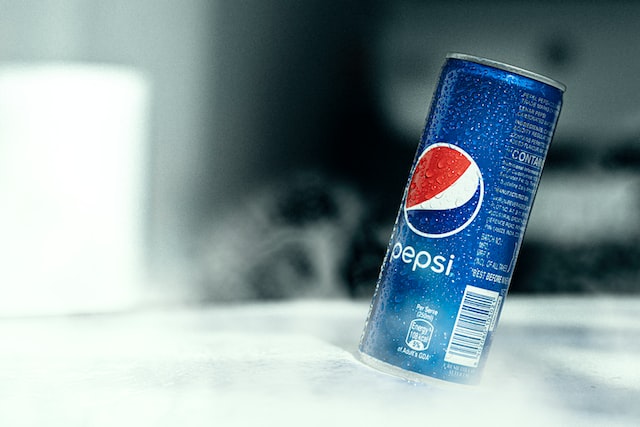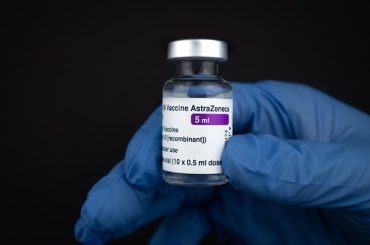Before we dive deep into the PESTEL Analysis, let’s get the business overview of PepsiCo. PepsiCo is a global food and beverage company headquartered in Purchase, New York, United States.
The company was founded in 1965 through the merger of Pepsi-Cola, a soft drink company established in 1898, and Frito-Lay, a snack food company founded in 1932. PepsiCo has become one of the world’s largest and most successful food and beverage companies, with a diverse product portfolio that includes well-known brands in various categories.
Pepsi is organized into seven reportable segments (also referred to as divisions) as follows:
- Frito-Lay North America (FLNA), which includes its branded convenient food businesses in the United States and Canada
- Quaker Foods North America (QFNA), which includes its branded convenient food businesses, such as cereal, rice, pasta, and other branded food, in the United States and Canada;
- PepsiCo Beverages North America (PBNA), which includes beverage businesses in the United States and Canada;
- Latin America (LatAm), which includes all of the beverage and convenient food businesses in Latin America;
- Europe, which includes all of the beverage and convenient food businesses in Europe;
- Africa, Middle East, and South Asia (AMESA), which includes all of our beverage and convenient food businesses in Africa, the Middle East, and South Asia; and
- Asia Pacific, Australia, New Zealand, and China Region (APAC) includes all beverage and convenient food businesses in Asia Pacific, Australia, New Zealand, and China.
Innovation and Sustainability: PepsiCo is committed to innovating new products, packaging, and manufacturing processes that meet consumer demands and promote sustainability. The company has set ambitious environmental goals, such as reducing water and energy usage, lowering greenhouse gas emissions, and increasing the use of recyclable packaging materials.
Financial Performance: In 2023, Pepsi generated a revenue of $91.4 billion at a net operating profit of $11.5 billion.
Here is the PESTEL analysis of PepsiCo
A PESTEL analysis is a strategic management framework used to examine the external macro-environmental factors that can impact an organization or industry. The acronym PESTEL stands for:
- Political factors: Relate to government policies, regulations, political stability, and other political forces that may impact the business environment.
- Economic factors: Deal with economic conditions and trends affecting an organization’s operations, profitability, and growth.
- Sociocultural factors: Relate to social and cultural aspects that may influence consumer preferences, lifestyles, demographics, and market trends.
- Technological factors: Deal with developing and applying new technologies, innovations, and trends that can impact an industry or organization.
- Environmental factors: Relate to ecological and environmental concerns that may affect an organization’s operations and decision-making.
- Legal factors: Refer to the laws and regulations that govern businesses and industries.
In this article, we will do a PESTEL Analysis of PepsiCo.
PESTEL Analysis Framework: Explained with Examples
Political
- Government Stability: The political stability of the countries PepsiCo operates in affects its operations. Instability can disrupt supply chains and lead to unpredictable market conditions.
- Trade Regulations: PepsiCo operates in hundreds of countries. Trade regulations, including tariffs, customs, duties, and quotas, can significantly impact PepsiCo’s ability to move goods across borders and its profitability.
- Tax Policies: Local and national tax policies impact PepsiCo’s bottom line. High corporate tax rates can affect profitability, and indirect taxes can increase the price of its products for consumers.
- International Relations: As a multinational, PepsiCo’s operations can be affected by international politics. Changes in diplomatic relations between the U.S. (where PepsiCo is headquartered) and other countries could impact PepsiCo’s ability to operate.
- Public Health Policies: Given that PepsiCo produces food and beverage products, it’s heavily influenced by public health policies. For example, regulations aimed at reducing obesity might limit the sugar content in beverages or require specific labeling.
- Political Advocacy: PepsiCo engages in political advocacy and lobbying to protect its interests and influence policies that may affect its operations. For example, it might lobby against policies imposing additional taxes on sugary beverages.
- Food and Drug Administration (FDA) Regulations: FDA regulations and other similar bodies across the globe affect PepsiCo’s product development, production, and distribution.
Economic
- Economic Growth: PepsiCo’s sales are influenced by the general economic conditions in its operating countries. If these economies are doing well and consumer purchasing power is high, it’s more likely that consumers will spend on PepsiCo’s products.
- Exchange Rates: As an international company, PepsiCo’s earnings can be significantly affected by fluctuations in exchange rates. If the U.S. dollar is strong, it could negatively impact the company’s profits when overseas revenues are converted back into dollars.
- Inflation Rates: High inflation rates in certain countries can affect PepsiCo’s operations, making raw materials more expensive and potentially requiring the company to increase its prices, which could reduce demand for its products.
- Interest Rates: Interest rates can impact PepsiCo’s cost of capital. If interest rates are high, it becomes more expensive for the company to borrow money for expansion or other business activities.
- Unemployment Rates: High unemployment rates can reduce consumer spending power, leading to lower sales for PepsiCo. On the other hand, high unemployment rates might make it easier for the company to hire workers at lower wages.
- Disposable Income of Consumers: The level of disposable income within the consumer base directly affects PepsiCo’s sales. Higher disposable income means consumers are more likely to spend on non-essential items like snacks and soft drinks.
- Commodity Prices: PepsiCo relies on various commodities like sugar, corn, and others for its products. Changes in the prices of these commodities can affect the company’s cost of goods sold and, ultimately, its profitability.
Sociocultural
- Changing Consumer Preferences: Consumers worldwide are becoming more health-conscious and looking for healthier alternatives to traditional snacks and beverages. This trend could impact PepsiCo’s sales if they don’t diversify and offer products that meet these evolving preferences.
- Demographics: Changes in demographics such as age distribution, population growth rate, and income distribution can influence the demand for PepsiCo’s products. For instance, an aging population may prefer different products to younger ones.
- Cultural Factors: As a global company, PepsiCo must adapt to the various cultural nuances of the countries it operates in. This includes respect for local customs and preferences regarding flavors, marketing, and even packaging.
- Lifestyle Trends: As lifestyles change over time, so do consumer preferences. Increased urbanization may lead to higher demand for ready-to-eat foods. Trends towards remote work affect where people buy food and drinks, with less demand in city centers and more in residential areas.
- Health and Wellness Awareness: There is an increased focus on health and wellness in society today. People are more aware of the risks associated with obesity and diabetes, which are linked to the consumption of high-sugar products. This factor affects PepsiCo significantly, pushing them to innovate healthier options.
- Ethical and Social Responsibility: Consumers increasingly seek to buy from companies that demonstrate social responsibility. This includes sustainable sourcing of ingredients, fair trade practices, and effective corporate social responsibility (CSR) initiatives.
Technological
- Automation and AI: The rise of automation and AI technologies can provide opportunities for increased efficiency in PepsiCo’s manufacturing and supply chain processes. This could reduce costs and improve product quality.
- E-commerce: The growth of online shopping and e-commerce platforms presents a significant opportunity for PepsiCo to reach a broader consumer base and increase sales. It can also enable direct-to-consumer marketing efforts.
- New Manufacturing Technologies: Technological advancements in food and beverage manufacturing could allow PepsiCo to create new types of products, improve the quality of existing products, or reduce production costs.
- Data Analytics: Using data analytics can help PepsiCo better understand consumer trends and preferences, optimize its supply chain, and make more informed strategic decisions.
- Digital Marketing: The advancement of technology has opened up new marketing and customer engagement platforms. PepsiCo can leverage social media platforms, SEO, email marketing, and other digital marketing tools to reach its consumers.
- Sustainable Technology: Technology that supports sustainability is increasingly important. PepsiCo can use technology to reduce its environmental impact, for example, by reducing water and energy usage in its factories or by developing more sustainable packaging solutions.
- Supply Chain Management Systems: Advanced supply chain management systems can improve efficiency, reduce costs, and increase the speed of distribution for PepsiCo.
Environmental
- Climate Change: Shifts in climate patterns can affect the availability and cost of ingredients PepsiCo uses in its products. This could mean the company has to change suppliers, adjust prices, or even reformulate products.
- Water Usage: Many of PepsiCo’s products, especially beverages, require water. This could become a significant issue in regions with water scarcity, affecting production and the company’s social license to operate.
- Waste Management: PepsiCo produces significant waste, particularly in packaging. Society and regulators are increasingly concerned about waste and recycling, which can lead to new rules and expectations for companies like PepsiCo.
- Sustainable Sourcing: Companies are increasingly pressured to source their ingredients sustainably. This means considering the environmental impact of farming practices and social issues like fair trade.
- Carbon Emissions: The carbon footprint of PepsiCo’s operations, from manufacturing to distribution, is another important factor. Regulators, investors, and consumers increasingly focus on reducing carbon emissions to mitigate climate change.
- Regulations: Environmental regulations vary from country to country and can significantly impact PepsiCo’s operations. These regulations can relate to anything from carbon emissions to packaging waste to water usage.
- Public Perception: Beyond regulatory compliance, public perception and the company’s reputation are important. Consumers are increasingly favoring brands that prioritize sustainability and environmental responsibility.
Legal
- Food and Beverage Regulations: Many legal regulations concerning the production and distribution of food and beverages differ from country to country. These can include regulations about ingredient sourcing, product safety, quality standards, and labeling requirements.
- Advertising Laws: Laws regulating advertising practices can also affect PepsiCo. For instance, there could be regulations around advertising sugary drinks to children, making health claims, or using certain marketing tactics.
- Employment Laws: As a global employer, PepsiCo must adhere to labor laws in all its countries. This can involve a wide range of issues, from minimum wage laws to health and safety regulations to non-discrimination policies.
- Environmental Laws: As mentioned in the previous section, environmental regulations can significantly impact PepsiCo’s operations. This can involve laws related to waste disposal, water usage, carbon emissions, and packaging materials.
- Intellectual Property Laws: Protecting its brand and product formulations is crucial for PepsiCo, which requires a strong understanding of intellectual property laws in various jurisdictions.
- Tax Laws: PepsiCo has to comply with tax laws in each country it operates in. Changes in these laws can significantly impact the company’s bottom line.
- Antitrust Laws: As a large multinational company, PepsiCo must be mindful of antitrust laws designed to promote competition and prevent market monopolies.











